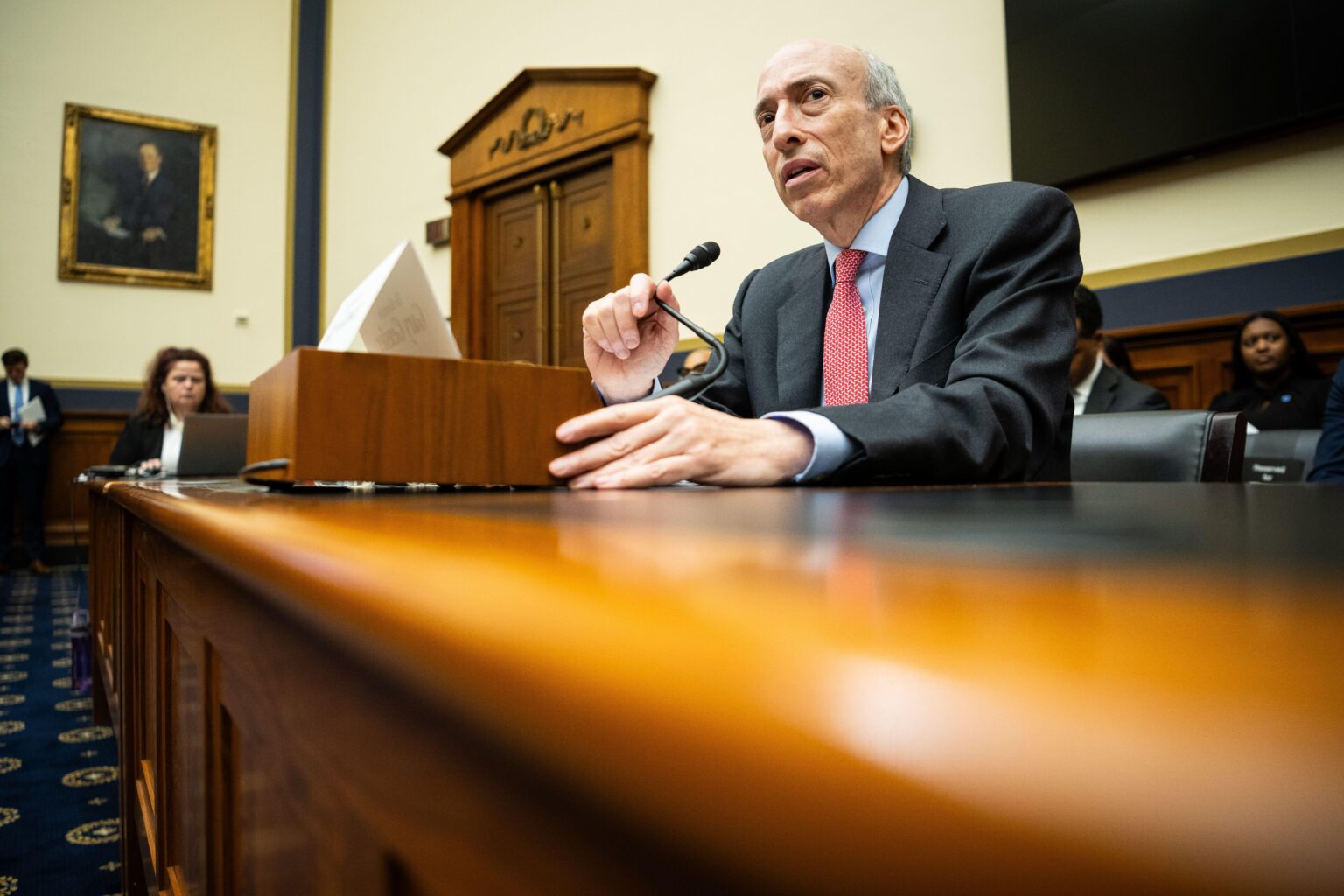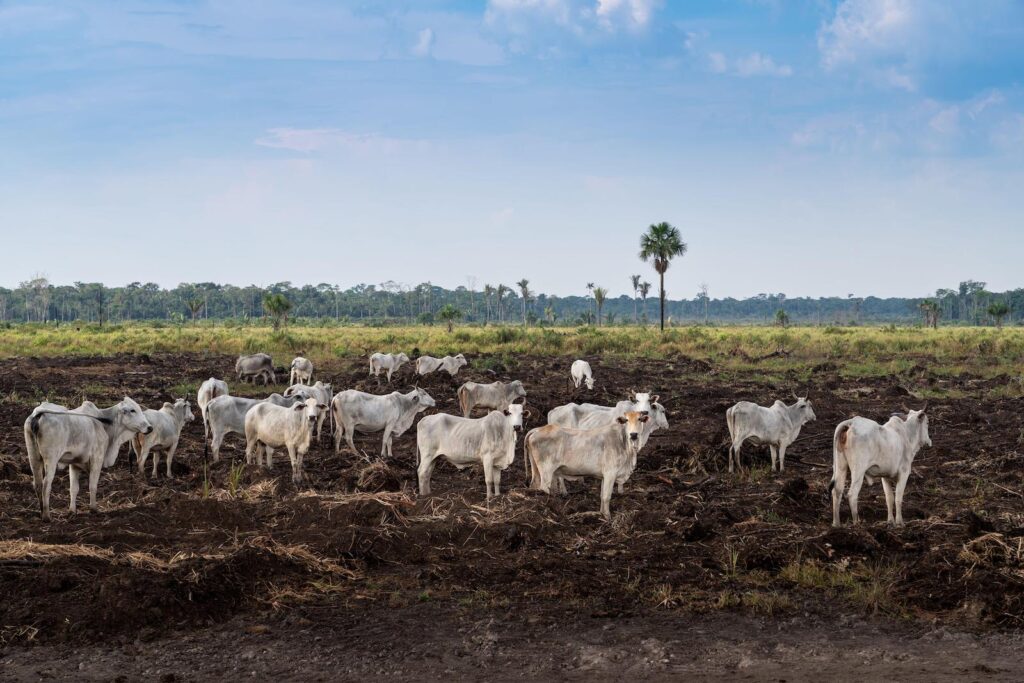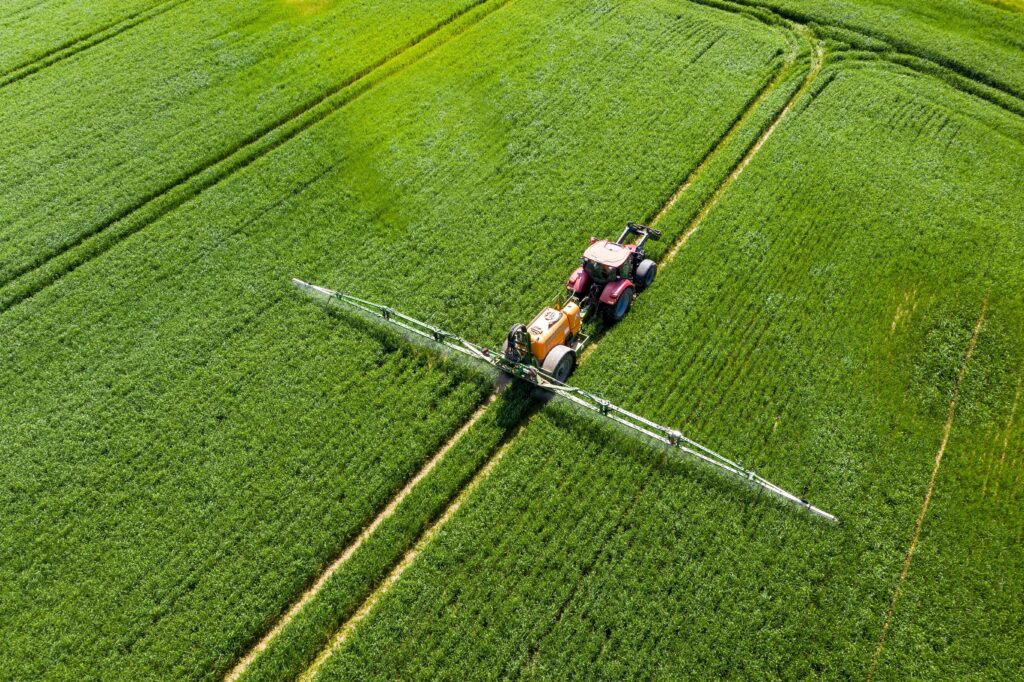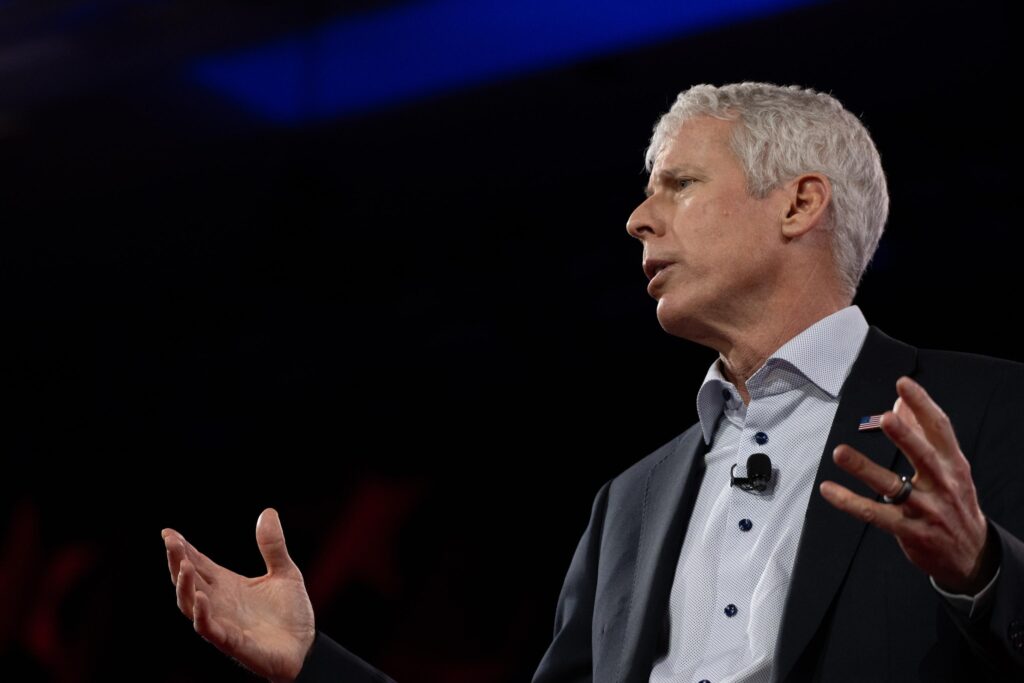The U.S. Securities and Exchange Commission (SEC) made headlines around the world this week by voting to move forward with rules that will require public companies to disclose climate-related business risks to investors.
Some lawmakers have welcomed the mandate from the U.S.’s most powerful financial regulator, which will now force firms to share at least some emissions data.
But climate and environment campaigners are concerned about loopholes in the new rules, which have failed to include “Scope 3,” i.e. indirect, greenhouse gas emissions.
The reporting of these emissions is key to understanding the full climate impact of major companies, particularly big meat and dairy producers for whom Scope 3 emissions make up the vast majority of their climate footprint – as much as 80-90 percent, according to the Institute for Agriculture and Trade Policy.
Industrial agriculture produces around 10 percent of U.S. greenhouse gas emissions, and livestock accounts for about a quarter of this total. Much of it is methane, which is especially potent for the twelve years it lingers in the atmosphere with a warming potential 28 times that of carbon dioxide.
Reducing methane is seen by experts as a quick climate win, and both the food system and energy sector have been called on by UN climate body the IPCC to curb emissions.
The original version of the SEC’s rules, proposed in 2022, would have required mandatory reporting by companies of their Scope 1, 2 and 3 emissions, accounting for their total climate footprint. But the final iteration obliges companies to report only on Scopes 1 and 2 – and then only if the company deems them to be of “material” importance to investors.
This is attributed in part to lobbying from corporations – including agribusinesses and their allied groups, like the American Farm Bureau Federation and the National Cattlemen’s Beef Association – as well as politicians like Jon Tester (D-MT), who said the Scope 3 requirement would have “created burdensome federal reporting requirements for family farmers and ranchers.” (Tester did not respond to a request for comment.)
Losing the Scope 3 emissions requirement was a major blow in the eyes of environmental groups that wanted to see agricultural polluters disclose to investors the full depth of their contribution towards global heating.
“From a securities law perspective, the new rule excluding Scope 3 disclosure requirement is disappointing,” said Kevin Galbraith, a securities attorney who, alongside environmental NGO Mighty Earth, last year filed a complaint with the SEC about Brazilian meat behemoth JBS and its claims about deforestation.
“The rule appears to allow businesses, including agribusinesses, to exclude from their disclosures – to the investing public and the consuming public – information that’s critical to understanding their overall greenhouse gas impact.”
Scope 3 emissions include those generated indirectly by a company, both upstream (in the production of its products) and downstream (when they’ve been produced and are then purchased and consumed).
In the case of agriculture, this means that emissions that come from raising livestock, with their methane-laden burps and manure, count as Scope 1 and 2 emissions for the farmers raising them, but as Scope 3 for the food companies that purchase and slaughter the animals.
Chloë Waterman, a senior program manager at environmental nonprofit Friends of the Earth, emphasized just how major Scope 3 emissions are for global meat companies like JBS. “There’s one study that puts JBS’s Scope 3 emissions at 97 percent of its total emissions. So if it’s disclosing 3 percent of its emissions in Scope 1 and 2, that’s giving us a very distorted view” of the company’s climate impact, she said.
Avoiding scrutiny
The new SEC rules appear to offer yet another line of defense against increasing scrutiny of animal agriculture’s substantial greenhouse gas emissions.
This is due in part to another catch in the rules.
You might expect that livestock companies would have to disclose their large Scope 1 and 2 emissions from manure management (i.e., the greenhouse gasses emitted from the roughly 1.3 billion tons of manure created by intensively reared U.S. livestock annually). But the regulation states that they are not obliged to if other federal legislation prohibits such reporting.
When it comes to manure management, that prohibition does exist, in the form of a “rider” – an additional provision that’s added to a bill under consideration by the legislature – to the appropriations bill for the Department of the Interior and the Environmental Protection Agency (EPA).
That rider explicitly dictates that no federal funds can be used to implement provisions that would require “mandatory reporting of greenhouse gas emissions from manure management systems.”
This is a notable carve-out, since manure management systems are a significant source of emissions on U.S. farms, accounting for about 11 percent of the country’s total agricultural greenhouse gasses, and an even higher proportion of its methane.
The exemption also means the industry doesn’t have to report on other pollutants manure creates, including ammonia, which combines with other air pollutants to form solid particles that cause heart and lung problems when inhaled over time.
“The fact that they still won this exemption, is an allowance on top of an allowance,” said Waterman. “They already got to not have to disclose Scope 3 emissions altogether, which is where the bulk of emissions from the agriculture sector – and from these big [livestock] companies – come from.”
The SEC’s carve-out for manure management appears to be based on language from the 2023 appropriations bill, which was repeated verbatim in the 2024 appropriations bill.
It’s not the first time that this powerful lobby has achieved what Waterman calls “agricultural exceptionalism” in U.S policymaking. For the past decade, it has also used similar riders to successfully keep the sector mostly exempt from the Clean Air Act, which regulates emissions and should authorize the U.S. EPA to establish air quality standards to protect the public from harmful air pollutants.
Staunch opposition
So what will these final SEC climate rules mean practically for major meat and dairy producers?
“There aren’t a lot of practical implications,” Waterman sums up, “because the big meat and dairy companies, the way their operations work – intentionally so – is that they don’t typically own the animals.”
As big meat and dairy companies will often employ farmers as contractors to both raise animals and manage their manure, this effectively keeps the substantial Scope 1 and 2 emissions involved in raising livestock off their company books. These emissions are therefore categorized as indirect Scope 3 emissions for major agribusinesses and not required to be disclosed to investors.
Even in its weakened form, the SEC’s rules face trenchant opposition: the first lawsuit against the regulator was filed by ten Republican-led states less than two hours after the passage of the rule.
The Republican-led Appropriations Committee also celebrated that the bill for the Interior made a “targeted cut” to the EPA of about 10 percent, and that it maintained provisions “exempting farmers and livestock producers from burdensome greenhouse gas requirements.”
But in this hostile political and legal reality, some see the SEC’s disclosure rules as a tactical – if insufficient step – in the right direction.
“The SEC does not operate in a vacuum. They are trying to craft a set of rules that are likely to survive litigation and scrutiny ultimately by the Supreme Court,” explains Galbraith.
“I think the SEC and those who wish to defend the powers of the SEC to regulate securities markets and ensure truthful disclosure should roll up their sleeves and be ready for a fight.”
The SEC declined to comment.
Subscribe to our newsletter
Stay up to date with DeSmog news and alerts







